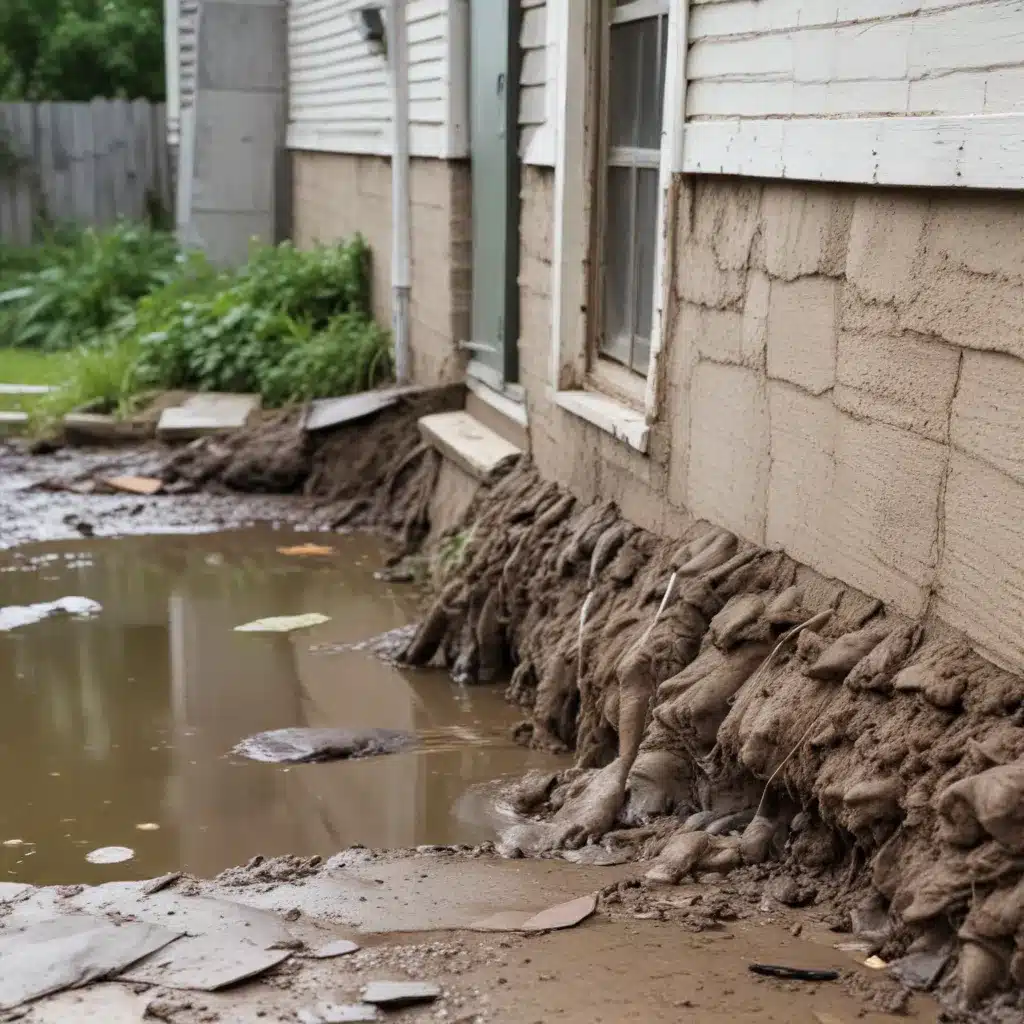
Identifying the Signs of Water Damage
As an experienced water damage restoration specialist, I’ve seen firsthand the devastating effects that sewage backups can have on rental properties in the Orlando area. These types of water emergencies require a swift and strategic response to mitigate the damage and protect the safety of both tenants and the property itself.
One of the first responsibilities as a property manager is to quickly identify the signs of water damage. Common indicators of a leak can include musty odors, discoloration on walls or ceilings, and unexpected spikes in water usage. Regular inspections of water meters, plumbing fixtures, and roofs can help catch problems before they escalate.
When a leak is detected, it’s crucial to act immediately. Sewage backups, in particular, pose serious health risks and can cause extensive structural damage if not addressed promptly. As a water damage restoration specialist, I’ve seen how a delayed response can lead to the growth of harmful mold, the deterioration of building materials, and even the displacement of tenants.
Responding to Water Emergencies
The key to effective water damage management is a well-coordinated response plan. When a leak or sewage backup is discovered, the first step is to shut off the water supply and assess the extent of the damage. This involves thoroughly inspecting the affected areas, checking for any signs of water in adjacent units, and determining whether the issue is contained or still active.
Once the situation is under control, the next step is to work with trusted vendors to initiate the repair process. This often involves coordinating with water damage restoration professionals, plumbers, and potentially mold remediation experts, depending on the severity of the incident. The goal is to not only fix the underlying problem but also address any resulting damage to the property.
During the restoration process, clear and open communication with tenants is crucial. Keeping them informed about the timeline for repairs, the steps being taken to minimize disruption, and any necessary temporary accommodations can go a long way in maintaining trust and tenant satisfaction.
Preventing Future Water Damage
While responding quickly to water emergencies is essential, proactive measures can help property managers avoid the headache of costly repairs and tenant dissatisfaction. Implementing a comprehensive preventative maintenance program can significantly reduce the risk of water damage in rental properties.
Regular inspections of plumbing systems, roofs, and gutters can help identify potential issues before they turn into major problems. Investing in routine maintenance tasks, such as cleaning gutters, checking for leaks, and ensuring proper drainage, can go a long way in safeguarding the property.
Additionally, educating tenants on the importance of responsible water usage and prompt reporting of any issues can empower them to be active partners in preventing water damage. By fostering a shared understanding of the risks and the necessary preventative measures, property managers can create a culture of proactive maintenance and incident response.
Navigating Insurance Claims
When faced with extensive water damage, the financial impact can be a significant concern for property owners. In such cases, filing an insurance claim is often necessary to cover the costs of repairs and restoration. As a water damage restoration specialist, I’ve worked closely with property managers to facilitate this process.
Proper documentation is key to ensuring a successful insurance claim. This includes detailed records of the damage, repair estimates from vendors, and comprehensive reports outlining the steps taken to mitigate the issue. A knowledgeable property manager can serve as a valuable liaison, guiding the property owner through the claims process and advocating for a fair settlement.
It’s important to note that not all water damage incidents are treated equally by insurance providers. Sewage backups, for instance, may be categorized as a different type of claim, requiring specialized expertise to navigate. Property managers who are well-versed in insurance policies and claims procedures can help property owners maximize their coverage and minimize out-of-pocket expenses.
The Importance of Partnering with Professionals
Effectively managing water damage in rental properties requires a multi-faceted approach that combines prompt incident response, proactive maintenance, and a deep understanding of insurance and legal requirements. As a water damage restoration specialist, I’ve seen firsthand the benefits of partnering with experienced property managers who prioritize the safety and well-being of their tenants.
By working with a reputable property management company, like https://orlandowaterdamagerestoration.net/, property owners can ensure that their rental properties are in good hands. These professionals have the expertise, resources, and established relationships with trusted vendors to handle water emergencies efficiently and mitigate the long-term consequences of water damage.
Moreover, a skilled property manager can help navigate the complex legal and regulatory landscape surrounding water damage and tenant rights. They can ensure compliance with local building codes, facilitate effective communication with tenants, and safeguard the property owner’s interests in the event of a dispute or insurance claim.
Conclusion
As a water damage restoration specialist, I’ve seen the devastating impact that sewage backups and other water emergencies can have on rental properties in the Orlando area. However, with a proactive and well-coordinated approach, property managers can significantly reduce the risk and minimize the consequences of these types of incidents.
By staying vigilant for the signs of water damage, responding swiftly to emergency situations, and implementing comprehensive preventative measures, property managers can protect their rental properties and maintain the trust and satisfaction of their tenants. Additionally, partnering with experienced professionals in the water damage restoration industry can provide invaluable support and guidance throughout the entire process.
Safeguarding your rental properties from sewage backups and other water-related issues is a crucial responsibility for any property manager. By taking the necessary steps to address these challenges, you can not only preserve the structural integrity of your buildings but also foster a safe and comfortable living environment for your tenants.

